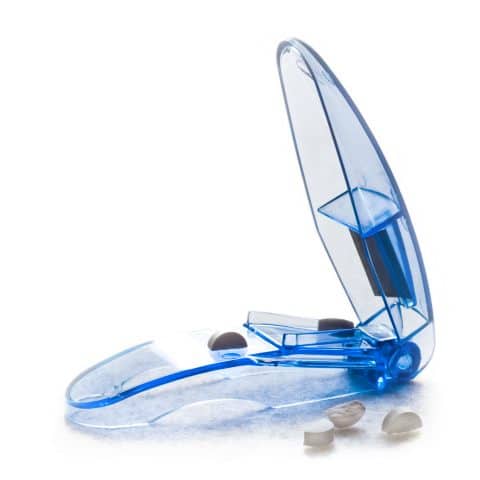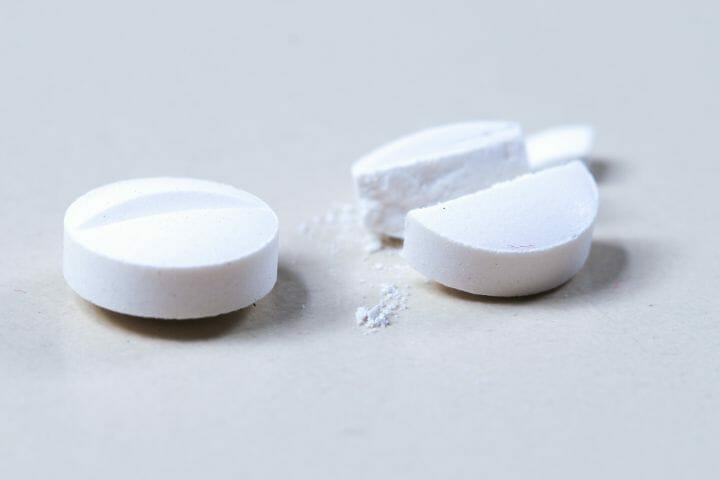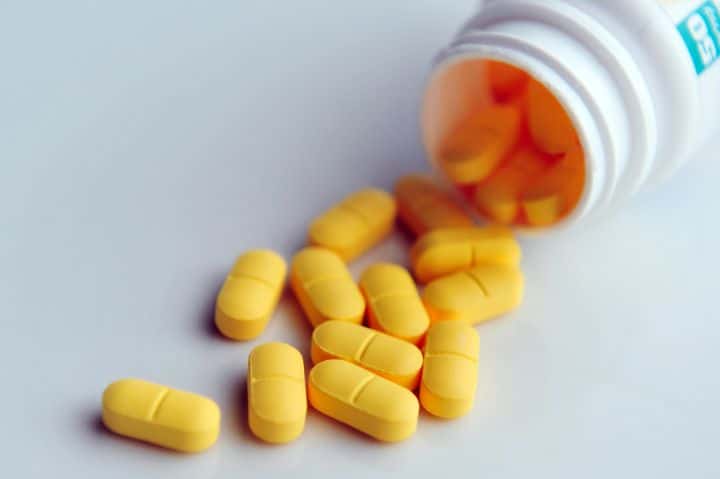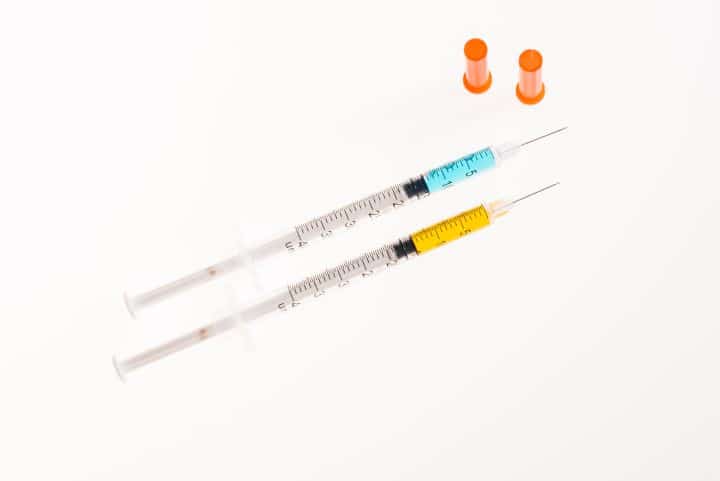Taking medications for any health condition should not be a reason you can’t travel and see the world. Depending on the medication you take and the dosage, you might need to bring a pill cutter with you to make sure you take the correct amounts of your medication.
Most travelers will bring their medications and necessities in their carry-on bags so they have access to what they need in case their luggage is lost.
For many, this begs the question: can I bring a pill cutter on the airplane with me? Here’s what you need to know about traveling with medications and medical supplies.
Contents
Traveling with a Pill Cutter
For some items, there are very clear guidelines for whether you can bring it on a plane but there are other items – like pill cutters and other medical supplies – where the guidelines are a little fuzzy and it leaves travelers confused.
Some agents may ask you to open your carry-on bag when you go through security if they see something that catches their eye, but others may not.
So knowing this, you’re kind of chancing whether or not you will be asked what it is and if they feel it’s dangerous they might take it away from you at the airport.
Knowing what it does, though, you need this device to make sure you take the right dosage of your medications so if it’s taken from you at the airport it can be a big deal.
There are a couple of suggestions you can follow to make sure you are abiding by the security guidelines and you can take the appropriate dosage of medication as needed.
Pre-Cut the Pills
If you know how long you’re going to be traveling for and it’s a relatively short amount of time, you can cut the number of pills you will need before you go and put them into the prescription bottle.
This way, you have exactly what you need and you don’t need to worry about bringing the pill cutter on the airplane with you. Additionally, there also are ways to split pills without a pill cutter.
Pack the Pill Cutter
If you are going to be away for a longer period of time, or even an unknown amount of time, you can pre-cut enough pills to get you through the time while you’re traveling. Then you can have the pill cutter in your checked baggage so that you can cut more if you need to.
This option is helpful if your dosage changes or you will be away from home for an extended period of time.
You may also like How Much Is A Pill Cutter
Traveling with Medication
Some of the rules and regulations are unclear as to how exactly you need to package medications for travel. Many travelers have questions about how exactly they can make sure they have the medications needed, so here’s a little more information about what you need to know.
By the way, we have a separate article on how to organize pills.
Taking medications abroad
While some of the medications you take for certain conditions are legally prescribed in Canada, that doesn’t mean they are allowed in all countries around the world.
Each country governs which medications are allowed through their borders, so even if it’s completely legal for you in your home country, it could mean it will be confiscated when you go through security.
If you want to be totally sure which medications you can bring with you when you’re traveling abroad, you can visit the foreign embassy of the country or countries, you’re going to be visiting.
There is also a resource called The International Narcotics Board that has information about controlled substances around the world.
If you need to consider alternatives because the medication you’re taking isn’t allowed where you’re traveling, you’ll need to leave enough time to talk to your doctor.
Your doctor can help you discover a suitable alternative you can take while you’re traveling and then make sure it’s safe to return to taking your regular medication when you return home.
Keeping medications in their original container
Many people ask if they need to keep the medications in their original container while traveling. The short answer is no, but that doesn’t mean it’s a good idea to take them out of their original containers.
If you keep them in the packaging they came in, it leaves less room for scrutiny if your bag is looked at during a security check.
It’s also recommended that you only travel with the amount of medication you will need (if possible) and not excessive amounts. If you are traveling for 10 days, for example, you may want to travel with 15 – 17 days worth just in case you are held up for any reason.
You will also want to get a note from your doctor(s) describing the medication you’re taking and the reason for taking it. Keep this note with the medications in your bag so that it’s easily accessible if it’s needed.
You may also like Best Pillbox with Alarm
Liquid medications
Some medical conditions require a medication that only comes in a liquid form, and you still need to travel with it. Thankfully, medications are not subject to the same rules as other substances when traveling so you can bring liquid medications on airplanes that are more than 3.4 ounces.
Make sure the label and packaging are appropriate for the medication, and you can fill out a notification card that explains the situation and your medical condition in case any questions come up.
Medications in checked luggage
If you don’t take your medications every day, or you have enough in your carry-on and want to put the rest in check, you definitely can do this. There isn’t a rule that says medications have to be in your carry-on bag.
It’s important to keep in mind that your checked luggage could go missing, get on the wrong airplane, or even get stuck at the airport while you’re traveling.
If the medication is something you absolutely need to take for a medical condition, you may not want to put it in your checked luggage just in case.
Declaring prescription medications
One of the most common questions asked is whether you need to declare that you’re carrying prescription medications with you. The short answer is no, you don’t have to.
The only exception is if you’re traveling with liquid medication, and in that case, you do need to disclose that you’re traveling with it. This is more of an FYI before you go through security just so they know when they’re scanning your bag.
They will still scan your bag and may have questions about some of the medication, but you don’t need to disclose to it unless you have liquid medications.
You may also like Best Pill Dispensers for the Elderly
Traveling with someone else’s medication
If you’re traveling with your partner, it’s completely reasonable to put everyone’s medication together into the same bag.
This can be a tricky area, though, as traveling with prescription medications that aren’t in your name is illegal as it can be considered drug trafficking – even if it wasn’t intentional.
If you’re the parent or guardian of a child who requires medication, you are able to travel with their medication as well. As long as you’re traveling with the person whose medication it is, it’s generally ok but there could be questions about it.
A letter from the doctor
You don’t absolutely need to have a letter from your doctor but it can help and make the security process quicker if you have it.
To be effective, the letter should explain what the medication is, why it was prescribed and the medical condition you have that needs the medication.
The name on the letter needs to match the one that is on your passport and the one that is on the container or packaging of the medication.
Bringing needles on a plane
Some medications are required to be injected rather than being in pill form, and they require needles to do so. Medical needles are allowed on airplanes, but it’s generally a good idea to let the security officers know that you have them before they check your bag.
You may also like Best Accessible Airlines for Disabled Passengers & Wheelchair Users
Medical devices
If you need a medical device – like a CPAP – you are absolutely allowed to bring it on an airplane as long as it fits under your seat or in the overhead bin.
You are also permitted to use the medical device while flying if needed, but it’s always best to alert the staff on the airplane if you feel it might cause issues or other passengers to be uncomfortable.
Medical devices attached to your body
If you have a device like an insulin pump, ostomy, or a port that you cannot easily remove from your body you will need to let the security officers know before you go through the body scanner.
If you can remove the device then you may be asked to do so in a private room. If you cannot remove it, there could be additional screening like a pat-down or they may bring you to a private room to investigate it.
You may also like Best Airlines for Overweight Passengers
Conclusion
Traveling with medications and medical devices can be difficult and overwhelming, but as long as you’re prepared for it you can easily travel with them.
As a courtesy, you may want to notify the security agent at the airport that you have medications or medical devices in your carry-on bag but you are allowed to travel with them.
To make things even easier, make sure they are in the original packaging and have your name on the label. If you have any concerns about it, you can always contact the airport before you fly to make sure. Happy traveling!





